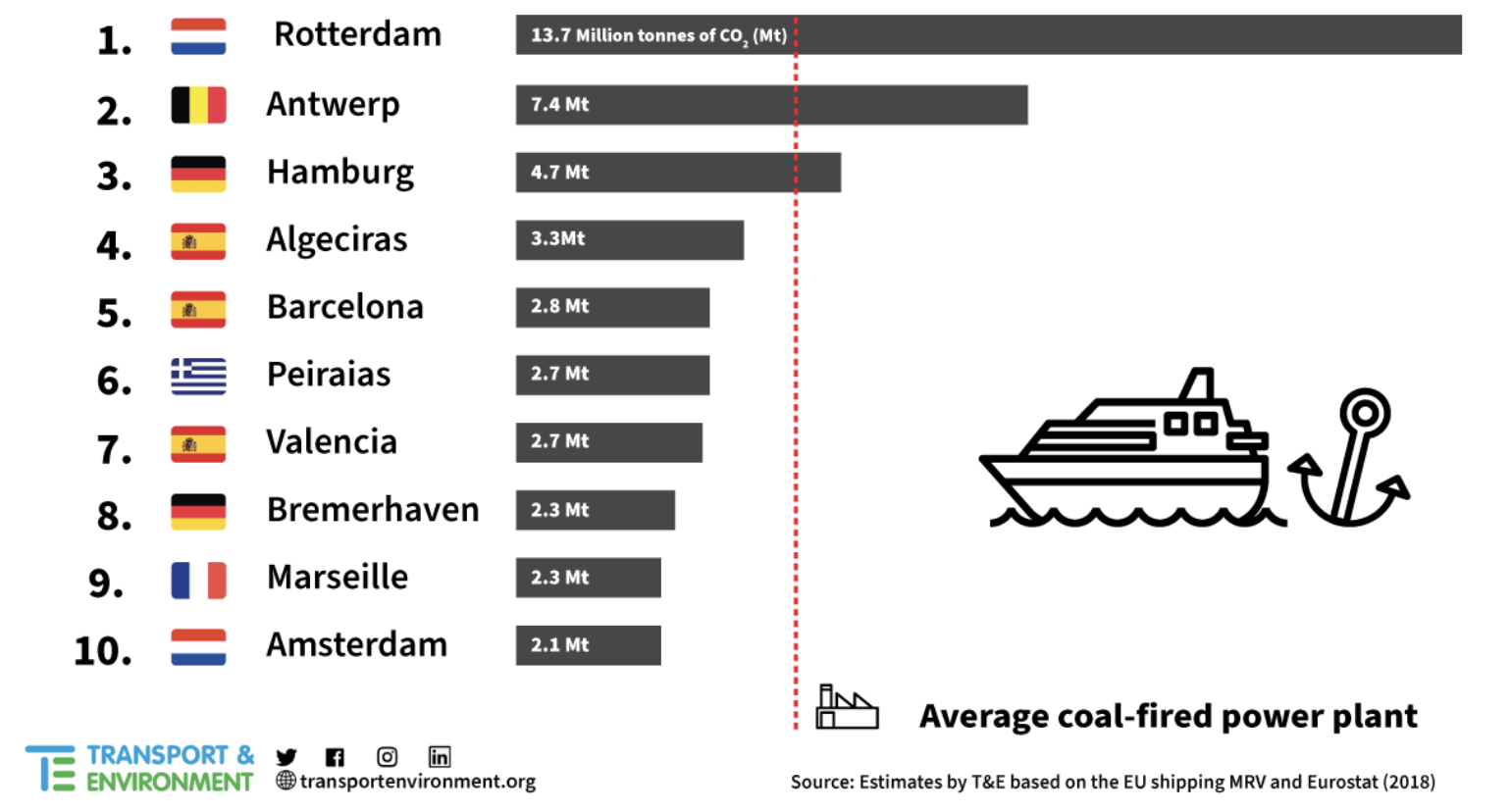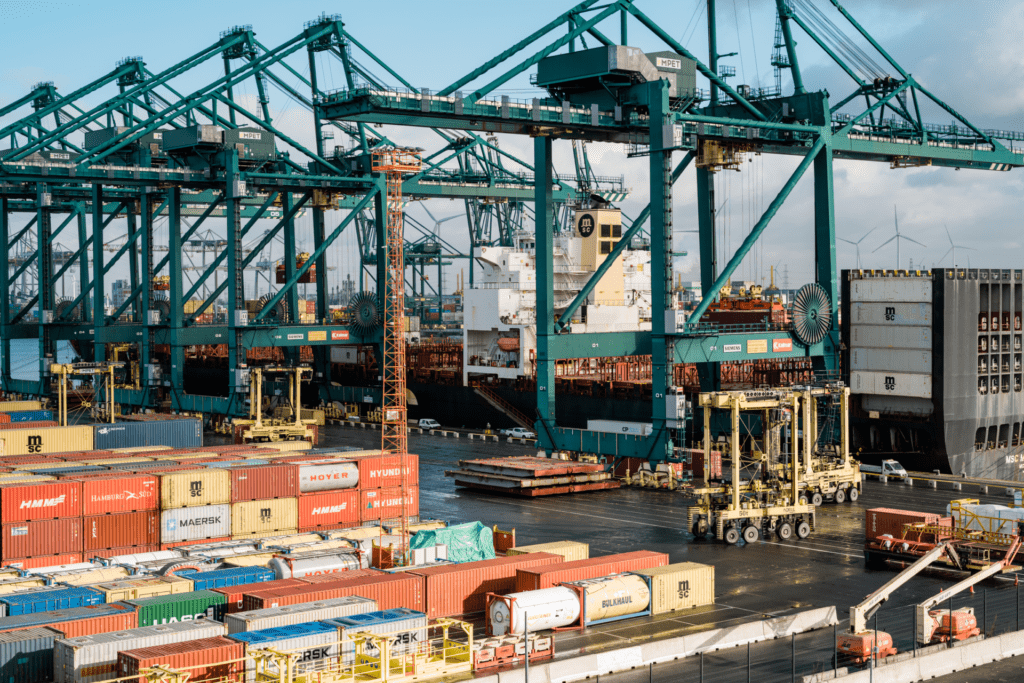The port in Antwerp is the second most polluting in Europe, according to new research, which showed that it emits 7.4 million tonnes of CO2 a year.
The Belgian port is second to the port of Rotterdam in the Netherlands, in the European Federation for Transport and Environment (T&E)'s ranking of Europe’s ports by carbon emissions, published on Wednesday.
"The shipping industry is making a killing right now. Ports are at the heart of this and their climate impact is enormous," said Jacob Armstrong, sustainable shipping officer at T&E.
"Yet, instead of getting behind proposals to clean up shipping, like comprehensive port electrification and mandates for green fuels, ports simply aren’t doing enough to clean up the sector."
For its ranking, T&E refers to the CO2 emitted by ships during their journey to the port (departing and entering ports from across the supply chain), as well as the CO2 that ships emit while moored in the port, including loading, unloading and refuelling.
The port of Antwerp emits 7.4 million tonnes of CO2 every year. By way of comparison: an average coal-fired power station emits 4.5 million tonnes of CO2 a year.

The top 10 most polluting ports in Europe. Credit: Transport & Environment
Meanwhile, the port of Rotterdam is responsible for twice the emissions (14 million tonnes of CO2 each year) of Antwerp, on a par with the Weisweiler coal power plant in Germany – Europe’s fifth-biggest industrial polluter.
Alongside CO2, traditional ships pump out significant amounts of harmful gases like nitrogen oxide (NOx) and sulphur dioxide (SOx).
A cleaner way to ship
The organisation stressed that in the year of sky-high profits for the industry following the post-Covid trade rebound, ports should do more to clean up shipping and get behind EU-wide efforts to reduce shipping’s climate impact.
Related News
- 'Extra efforts needed': Belgium failing to achieve sustainable development goals
- First EU lockdown prevented some 800 pollution-related deaths
"Ports can have a direct impact in 'greening' our planet by providing clean shipping infrastructure. This means installing hydrogen-based refuelling capabilities and shore-side electrification that would allow ships to turn off their engines and plug-in at the port," Armstrong said.
"This would also significantly improve the lives of those living near what are currently some of the most polluted places on earth."
In recent years, port lobbyists have argued against targets for shipping segments like oil tankers and bulk carriers, as well as against stricter targets for shore-side electrification, which would eliminate pollution while ships are moored in ports.
T&E called on the European Commission to help clean fuel infrastructure in ports by directing revenues from the forthcoming carbon market and has asked for the proposal to be considered during discussions regarding the EU’s green infrastructure law (AFIR), currently under discussion in the European Parliament and the Council.

